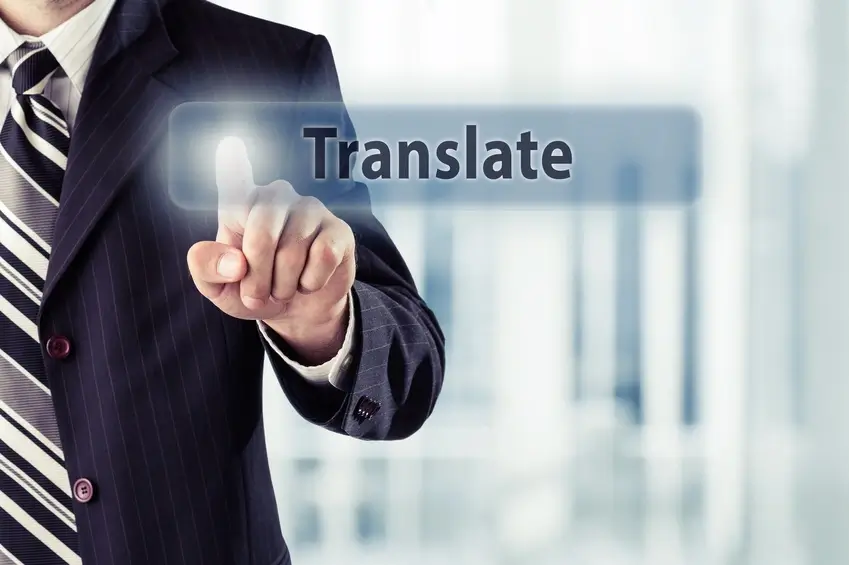
We are here for you!
Every day we help small and large companies and organizations to realize their international potential. We will gladly advise you. Are you interested? Request a non-binding offer now!
SEO Translations for Humans and Algorithms
SEO translations are more than just a simple translation of texts. They are the key to ranking content at the top of the world’s search engines. Because content can only be read and understood if it can be found. At ReSartus, we offer more than just a basic translation. Our experts combine linguistic expertise with in-depth SEO knowledge to ensure that your content is not only error-free but also optimized for search engines. For you, this means:
- Higher visibility: Your content will be found by more people.
- More traffic: Reach a larger audience.
- Increased conversion rate: Prospects become customers more easily.
- Global presence: Tap into new markets on the international stage.
Keyword Research
We identify the right keywords that your target audience uses in each respective country.
Localization
Content is not only translated but also culturally adapted for the target countries.
Metadata optimization
Titles, descriptions and alt texts are optimized for higher click rates.
Technical SEO
URLs are adjusted and hyperlinks localized so that they refer to the correct language.
Your questions – Our answers
If you have any further questions, please do not hesitate to contact us!
What is SEO?
SEO stands for “search engine optimization.” It refers to all technical and content-related measures aimed at improving the visibility and ranking of a website in the unpaid, organic search results (search engine results page, or SERP for short) of search engines such as Google or Bing.
The goal of SEO is to optimize a website so that it appears as high as possible in search results for relevant search queries. This drives more traffic (visitors) to the website, which is particularly important for companies to attract new customers and ensure long-term success.
The algorithms behind these search engines are now more complex than ever, as leaks at search engines such as Yandex 2023 and Google 2024 show. Accordingly, SEO has become a science in its own right.
What types of SEO translations are there?
SEO translations involve translating content in such a way that it is not only linguistically correct, but also recognized by search engines such as Google or Bing as relevant to the target language. This means that, in addition to linguistic precision,
- On-page SEO: This involves optimizing and translating the content on the website itself, for example by using relevant keywords in headings, subheadings and in the body text.
- Off-page SEO: These measures take place outside your own website, such as backlinks from other websites or activities on social media.
- Technical SEO: This is about the technical optimization of the website so that search engines can crawl and index it better.
How does SEO translation work?
- Keyword research: Identification of relevant search terms in the target language based on search volume and search intent.
- Localization of keywords: Adaptation of keywords to local customs and search habits.
- Translation of the text: Transfer of content by translators who are native speakers and take SEO aspects into account.
- Integration of keywords: Natural integration of keywords into text, headings, and meta data.
- Review and optimization: Checking the translation for readability, relevance, and SEO criteria.
What is SEO localization?
Search terms often vary considerably depending on the country and region. A term that has a high search volume in one country may hardly ever be searched for in another language or region. For example, the direct translation of an English keyword into German may not generate any search volume, while another, culturally established term may be in high demand.
In Germany, for example, “Handy” is searched for much more often than “Mobiltelefon”, both meaning mobile phone. For use in Switzerland, however, a website translated into German would not use ß—Straße becomes Strasse.
Do you have any further questions? Please feel free to contact us!
By phone on +49 (0) 711 995 222 20
or by email to mail@resartus.de.

- The highest quality standards
- Work according to DIN EN ISO 17100
- Native speaker principle
- Security and data protection
- Customer-oriented project management
OUR SECTORS
As a professional translation agency, we are the partner you can count on!
OUR SERVICES
As your partner, we offer to you, among other things:
- Alt texts
- Blogs
- Google Ads
- Keywords
- Meta decsriptions
- Meta data
- Meta titles
- Online banner
- Social media content
- Websites
- Online stores
- Ads
